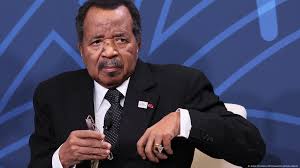In Cameroon, the pre-campaign for the October 2025 presidential election has taken an unexpected turn with the entry into the race of two historical figures from Paul Biya’s regime. Issa Tchiroma Bakary and Bello Bouba Maïgari, both loyal ministers for decades, have just declared their candidacies for the highest office, shaking the traditional power base in place.
On June 26, 2025, just one day after leaving the government, Issa Tchiroma announced that he was running for the presidency. He, who was successively Minister of Communication and then Employment, known for his unwavering loyalty to Paul Biya, made a critical turn by denouncing a regime “on its last legs” and disconnected from the aspirations of Cameroonian youth. This unexpected rallying to the momentum of rupture is not isolated.
Two days later, Bello Bouba Maïgari, Minister of Tourism, president of the National Union for Democracy and Progress (UNDP), followed suit. At a congress in Yaoundé, he officially announced his candidacy, positioning himself as a credible alternative to presidential longevity.
These two candidacies are particular in that they come from personalities who have long embodied the stability of the regime, especially in the North region. Their about-face is therefore heavy with symbolism. By breaking with the Cameroon People’s Democratic Movement (CPDM), the ruling party, the two men send a clear message: the regional and political balances that supported the power in Yaoundé are no longer untouchable.
The earthquake is all the more resounding as Paul Biya, 92 years old, has still not announced whether he intends to run for another term. Public opinion remains suspended on this decision, while candidacies multiply in a heavy institutional blur.
In this uncertain climate, the positions taken by Tchiroma and Bouba are not just acts of dissent; they mark a turning point in Cameroon’s political history. For some analysts, they reflect a strategic repositioning of aging figures, aware that the Biya era is coming to an end. For others, it is a disguised maneuver for individual legitimization, as both men are still accountable for the record they denounce today. In any case, these candidacies reshape the electoral landscape and break the tacit lock of an ultra-centralized power. In the long run, they could open a breach in the CPDM’s monopoly on the national stage. With a few months left until the scheduled election on October 5, the Cameroonian political game is heating up, and the succession of Paul Biya appears more contested than ever.


